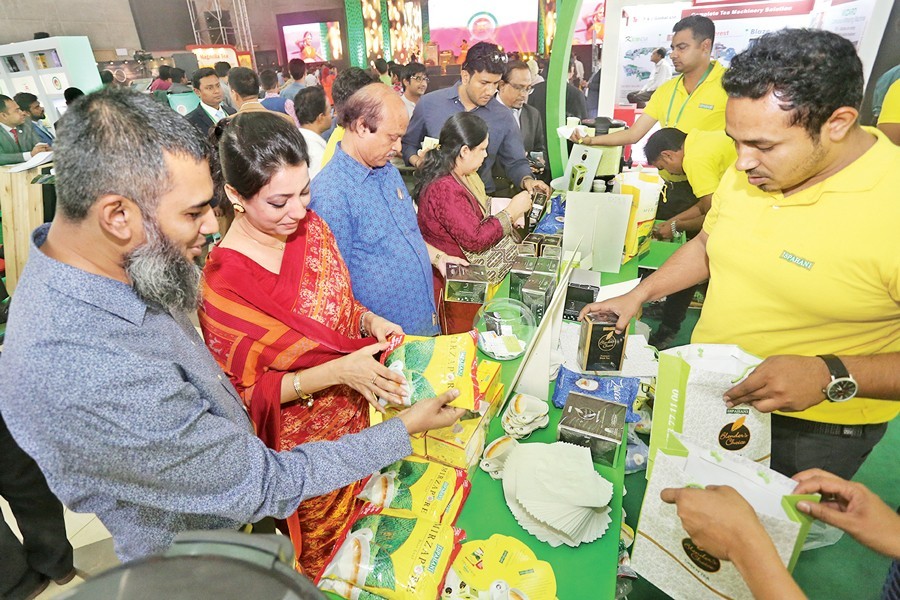The second edition of tea exposition concluded on Tuesday in Dhaka, generating enthusiasm among companies and visitors.
Organisers and participants of the 'Bangladesh Tea Expo-2018' said the event had become a gathering point for consumers and tea producers to exchange views on tea products and sectoral know-how. Throughout the expo, tea lovers got the chance to taste best quality liquors of different companies on a complimentary basis or at a token value on the venue.
Prime Minister Sheikh Hasina inaugurated the expo at the International Convention City Bashundhara (ICCB) in Dhaka on Sunday.
The Ministry of Commerce and Bangladesh Tea Board (BTB) jointly organised the event to help boost tea production in the country with new varieties.
At the concluding session, Ispahani officially launched its new premium 400-gramme-pack black tea brand 'Blender's Choice'.
The company also received 'best packaging award' for the new product from the Prime Minister on the inaugural day.
Talking to the FE, senior marketing manager of MM Ispahani Ltd SM Didarul Hasan said the response from the visitors was "very inspiring".
"From that point of view, we have become very successful in this year's expo," he added.
A tea-loving couple, Arpita and Mahmud, came to the expo to taste liquor of different types as they frequently stroll around the city to drink tea of various types and colours.
"Tea expo has been a great place to taste and gain knowledge about tea and its history," said Arpita, adding: "It's quite a trend in Dhaka now drinking different types of tea like tulsi tea, pudina (mint) tea, amlaki tea, morich cha (chilli tea) and many more." According to Bangladesh Tea Association, the country's tea growers produced around 78.95 million kilogrammes of tea last year.
The value of the produced tea was estimated at Tk 18.25 billion, of which Tk 120 million came from exports. In 2017, a total of 78.41 million kilogrammes of homegrown tea was consumed locally.
Meanwhile, tea producers paid Tk 2.72 billion as value added tax (VAT) to the government treasury. Around half a million people directly work in 164 tea estates in the country, of whom more than 50 per cent women.


